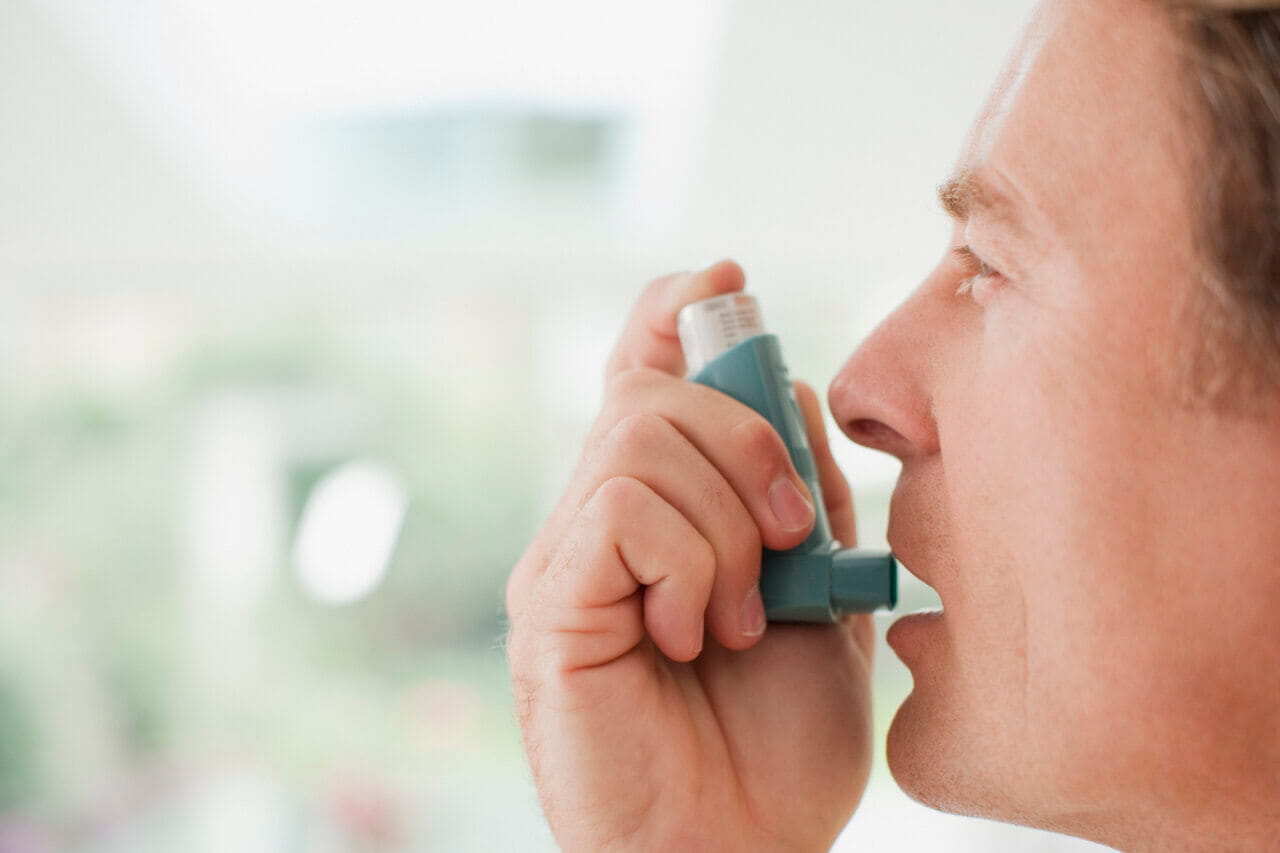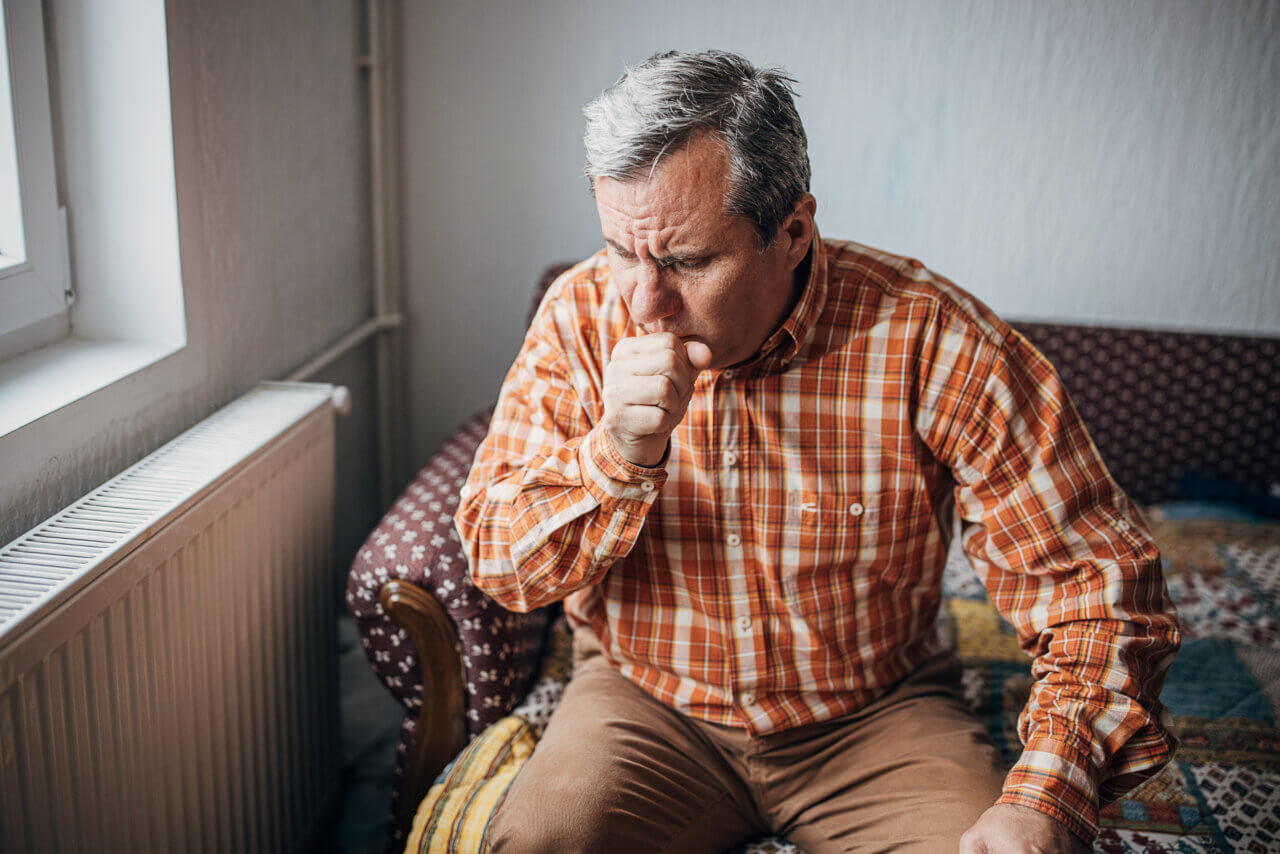What Is Emphysema?

Emphysema is a condition in which the walls between tiny air sacs in the lungs are damaged, resulting in the sacs losing their shape. The walls of the sacs may also be destroyed, leading to fewer and larger sacs. These changes make it harder for the lungs of someone with emphysema to bring oxygen into the body and remove carbon dioxide from it.
In terms of emphysema vs. COPD (chronic obstructive pulmonary disease), emphysema isn’t an entirely different disease but rather a type of COPD.
Emphysema Causes and Risk Factors
In general, long-term exposure to lung irritants causes emphysema. Most commonly, that irritant is cigarette smoke. Other types of smoke — cigar, pipe, marijuana, etc. — can cause the disease if inhaled. And frequent exposure to secondhand smoke, chemical fumes, dust, and air pollution can also promote emphysema.
In addition, genetics and age play a role in developing the disease. People with alpha-1antitrypsin deficiency or a family history of emphysema are more likely to develop it. And most people diagnosed with emphysema are 40 or older.
Emphysema Symptoms
People with emphysema typically have few or no symptoms initially. As the disease progresses, they develop symptoms like:
- A persistent cough, particularly one that produces mucus
- Wheezing
- Shortness of breath, especially when physically active
- Whistling sounds when breathing
- Tightness in the chest
People with emphysema may also experience swelling in their feet, ankles, or legs and weight loss.
You should seek immediate medical attention if you have any of these symptoms:
- Loss of mental alertness
- Shortness of breath so severe you can’t walk upstairs
- Lips or fingernails that turn blue or gray with exertion
Emphysema Diagnosis and Treatment
Doctors diagnose emphysema by first getting a medical history and performing a physical exam. Then, they may recommend various tests, including:
- Lab tests on blood taken from a wrist artery to check oxygen and carbon dioxide levels
- Noninvasive lung function tests, often with a device called a spirometer, to determine how much air your lungs can hold and how well they move oxygen into your bloodstream
- Imaging tests like chest X-rays and computerized tomography (CT) scans to support an emphysema diagnosis and rule out other causes of breathing problems
There’s no cure for emphysema. However, patients can improve their condition by quitting smoking and avoiding other lung irritants, getting regular exercise, avoiding cold air (which can cause bronchial passage spasms), and getting vaccinations for flu and pneumonia.
There are also treatments that can slow disease progression and provide symptom relief. They include:
- Medication. Your doctor may prescribe bronchodilators (to relieve breathing problems), inhaled steroids (to reduce lung inflammation), and antibiotics (to fight any bacterial infections that develop) to ease your discomfort.
- Therapy. Breathing exercises, supplemental oxygen, and nutrition therapy can help emphysema patients breathe and feel better.
- Surgery. In some cases, doctors recommend surgery to remove diseased tissue or a lung transplant.
If you have emphysema, it’s also essential to address your mental health by expressing your feelings to loved ones or a counselor and possibly joining a support group.
Learn About Respiratory Care Services at Baptist Health Urgent
Our respiratory care specialists can diagnose your condition, prescribe treatment, and work with you to manage your emphysema symptoms if you have the disease.
Learn more today.
Next Steps and Useful Resources
Emphysema vs. Chronic Obstructive Pulmonary Disease (COPD)
What are the Stages of COPD?
COPD and Common Risk Factors
Signs and Symptoms of COPD



